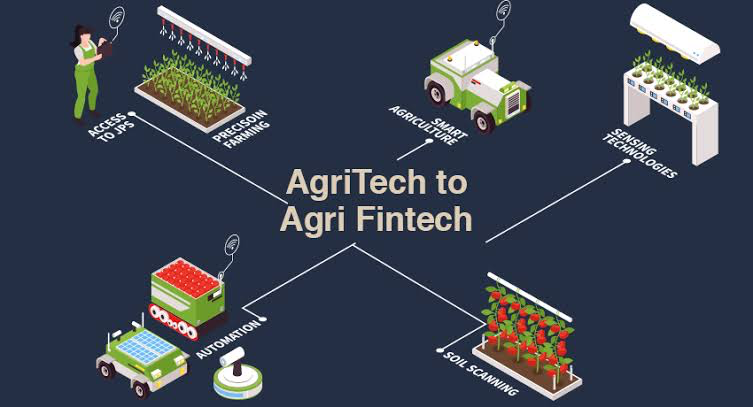Agriculture is the backbone of many African economies, employing millions of people and contributing significantly to GDP. However, despite its importance, the sector faces numerous challenges, including limited access to financial services. Fintech, or financial technology, is revolutionizing the way financial services are delivered to farmers, agribusinesses, and rural communities, promoting financial inclusion and economic growth.
The Challenge of Financial Exclusion in African Agriculture
In Africa, many farmers and agribusinesses lack access to formal financial services, such as credit, savings, and insurance. This is due to various factors, including:
- Limited bank branch penetration: Many rural areas lack bank branches, making it difficult for farmers to access financial services.
- High transaction costs: Traditional financial institutions often charge high fees, making financial services unaffordable for small-scale farmers.
- Lack of collateral: Farmers often lack the collateral required to secure loans, limiting their access to credit.
- Informal financial systems: Many farmers rely on informal financial systems, such as savings groups or money lenders, which can be unreliable and expensive.
The Role of Fintech in Improving Financial Inclusion
Fintech companies are leveraging technology to overcome the challenges of financial exclusion in African agriculture. Some of the ways fintech is improving financial inclusion include:
- Mobile money platforms: Mobile money platforms, such as M-Pesa and Orange Money, allow farmers to access financial services, such as savings, credit, and transfers, using their mobile phones.
- Digital lending: Fintech companies are using alternative data, such as mobile phone usage and social media activity, to assess creditworthiness and provide loans to farmers who lack traditional credit histories.
- Agricultural insurance: Fintech companies are developing innovative insurance products, such as index-based insurance, which pays out based on weather or crop yields, rather than individual losses.
- Digital payment systems: Fintech companies are developing digital payment systems, such as mobile-based payment platforms, to facilitate transactions between farmers, buyers, and suppliers.
- Blockchain technology: Blockchain technology is being used to create transparent and secure supply chain financing systems, enabling farmers to access financing based on their sales data.
Benefits of Fintech in African Agriculture
The use of fintech in African agriculture has numerous benefits, including:
- Increased access to financial services: Fintech companies are reaching farmers and agribusinesses that were previously excluded from formal financial services.
- Improved efficiency: Fintech companies are using technology to streamline financial transactions, reducing costs and increasing efficiency.
- Increased productivity: By providing access to financial services, fintech companies are enabling farmers to invest in their businesses, increasing productivity and yields.
- Reduced poverty: By providing access to financial services, fintech companies are helping to reduce poverty among farmers and rural communities.
- Economic growth: Fintech companies are contributing to economic growth by increasing access to financial services, promoting investment, and improving productivity.
Case Studies
Several fintech companies are making a significant impact in African agriculture. Some examples include:
- Agricultural Finance Corporation (AFC): AFC is a Kenyan fintech company that provides digital loans to farmers based on their mobile phone usage and social media activity.
- FarmDrive: FarmDrive is a Kenyan fintech company that provides digital financial services, including savings, credit, and insurance, to small-scale farmers.
- Hello Tractor: Hello Tractor is a Nigerian fintech company that provides digital tractor-hiring services, enabling small-scale farmers to access tractor services and improve productivity.
Challenges and Opportunities
While fintech has the potential to revolutionize financial inclusion in African agriculture, there are several challenges that need to be addressed. Some of the challenges include:
- Regulatory frameworks: Fintech companies need clear regulatory frameworks to operate effectively.
- Digital infrastructure: Fintech companies need reliable digital infrastructure, including internet and mobile networks, to operate effectively.
- Financial literacy: Many farmers lack financial literacy, making it difficult for them to access and use financial services effectively.
- Data security: Fintech companies need to ensure that farmers’ data is secure and protected.
Despite these challenges, there are numerous opportunities for fintech companies to improve financial inclusion in African agriculture. Some of the opportunities include:
- Partnerships: Fintech companies can partner with traditional financial institutions, governments, and agricultural organizations to reach more farmers.
- Innovation: Fintech companies can develop innovative financial products and services that meet the specific needs of farmers and agribusinesses.
- Digitalization: Fintech companies can leverage digital technologies to streamline financial transactions, reduce costs, and increase efficiency.
Conclusion
Fintech has the potential to revolutionize financial inclusion in African agriculture, promoting economic growth, reducing poverty, and improving productivity. By leveraging technology, fintech companies can overcome the challenges of financial exclusion, providing access to financial services for farmers and agribusinesses. As the sector continues to evolve, it is essential to address the challenges and opportunities facing fintech companies, ensuring that they can operate effectively and efficiently. With the right regulatory frameworks, digital infrastructure, and partnerships, fintech companies can make a significant impact in African agriculture, promoting financial inclusion and economic growth.

